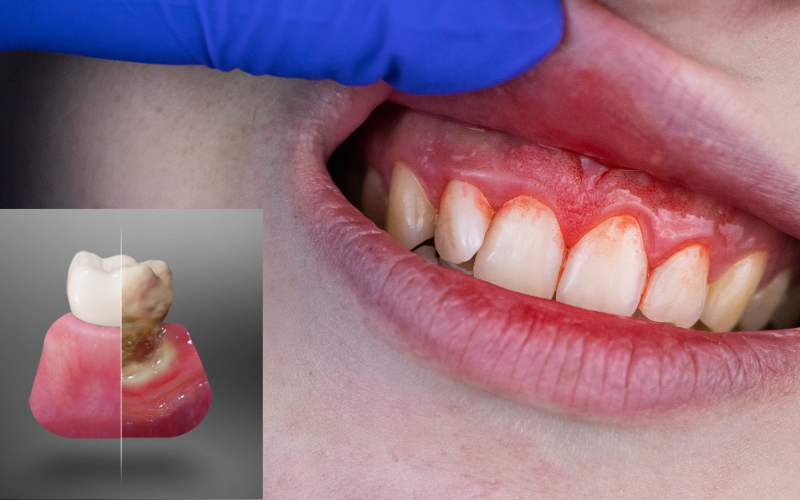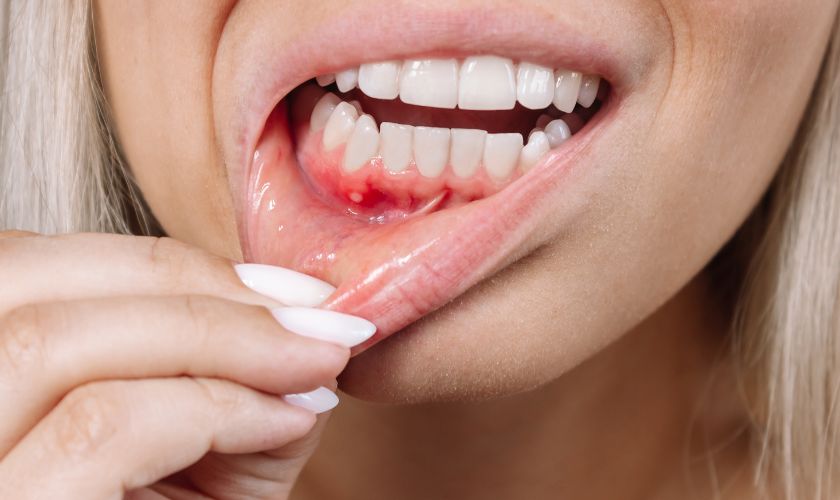(703) 372-5665
How to Avoid Gum Disease with Regular Periodontal Therapy

How to Avoid Gum Disease with Regular Periodontal Therapy
Gum disease, also known as periodontal disease, is a common yet preventable condition that affects many individuals. Understanding how to avoid gum disease is essential for maintaining a healthy smile and overall well-being. Regular periodontal therapy plays a crucial role in preventing this condition and ensuring optimal oral health. This blog delves into the importance of periodontal therapy, the signs of gum disease, and practical steps you can take to protect your gums.
The Importance of Periodontal Therapy
Periodontal therapy focuses on the prevention, diagnosis, and treatment of gum disease. This specialized dental care targets the supporting structures of the teeth, including the gums, bone, and ligaments. Regular visits to a dental professional for periodontal therapy can help identify early signs of gum disease, allowing for timely intervention.
Research indicates that gum disease can lead to serious health issues beyond the mouth. Studies link periodontal disease to conditions such as heart disease, diabetes, and respiratory problems. This connection emphasizes the need for effective oral hygiene and regular dental check-ups. By maintaining your periodontal health, you can significantly reduce your risk of these systemic diseases.
Understanding Gum Disease
Gum disease often begins with gingivitis, a mild form of the condition characterized by inflammation of the gums. Early signs of gingivitis include redness, swelling, and bleeding during brushing or flossing. If left untreated, gingivitis can progress to periodontitis, a more severe form that can result in tooth loss and damage to the bone supporting the teeth.
The bacteria present in plaque can cause the gums to become inflamed, leading to the symptoms associated with gum disease. Regular periodontal therapy, including professional cleanings, helps remove plaque and tartar buildup, significantly reducing the risk of developing gum disease.
Signs You Might Have Gum Disease
Recognizing the symptoms of gum disease is vital for early intervention. Here are some common signs to watch for:
- Bleeding Gums: If your gums bleed during brushing or flossing, it’s a sign that inflammation may be present.
- Persistent Bad Breath: Halitosis can be a symptom of gum disease. The bacteria that cause gum disease can produce foul odors.
- Swollen or Red Gums: Healthy gums should appear pink and firm. Swollen or red gums indicate inflammation and may suggest gingivitis or periodontitis.
- Receding Gums: If your gums appear to be pulling away from your teeth, exposing more of the tooth or its roots, this could indicate gum disease.
- Loose Teeth: Advanced gum disease can lead to tooth mobility as the bone and ligaments supporting the teeth become compromised.
If you notice any of these symptoms, seeking help from a dental professional promptly is essential. Regular check-ups with your dentist Lorton can provide an early diagnosis and necessary treatment.
Best Practices for Preventing Gum Disease
Maintaining optimal oral hygiene is crucial for preventing gum disease. Here are several effective practices you can incorporate into your daily routine:
1. Brush Your Teeth Regularly
Brushing your teeth at least twice a day is vital for removing plaque buildup. Use fluoride toothpaste and a soft-bristled toothbrush. Ensure you brush for at least two minutes, covering all surfaces of your teeth and along the gum line. Don’t forget to replace your toothbrush every three to four months, or sooner if the bristles are frayed.
2. Floss Daily
Flossing is essential for removing food particles and plaque from between your teeth and below the gum line. Make it a habit to floss at least once a day, ideally before bedtime. Proper flossing technique involves gently sliding the floss between your teeth and making a C-shape around each tooth to clean thoroughly.
3. Use Mouthwash
Incorporating an antimicrobial mouthwash into your oral care routine can help reduce plaque and bacteria in your mouth. Choose a mouthwash specifically designed to combat gum disease. Swishing with mouthwash can provide an extra layer of protection against gum inflammation and bad breath.
4. Regular Dental Visits
Regular dental check-ups and cleanings are crucial for maintaining periodontal health. Schedule visits every six months, or more frequently if recommended by your Dentist Lorton. Professional cleanings remove tartar buildup and allow your dentist to monitor your gum health closely.
5. Eat a Balanced Diet
A healthy diet rich in vitamins and minerals supports gum health. Foods high in vitamin C, such as citrus fruits, strawberries, and bell peppers, can help maintain gum tissue. Additionally, dairy products provide calcium, which is essential for strong teeth and bones.
Avoiding sugary snacks and beverages can also help prevent plaque buildup. If you indulge, make sure to brush your teeth afterward or rinse your mouth with water.
6. Avoid Tobacco Products
Smoking and using other tobacco products significantly increase the risk of developing gum disease. These habits impair blood flow to the gums, making it harder for them to heal and fight infection. Quitting smoking can have immediate and long-term benefits for your oral and overall health.
The Role of Professional Periodontal Therapy
In addition to personal oral hygiene practices, professional periodontal therapy is vital for preventing gum disease. Here’s what you can expect during a typical periodontal appointment:
- Comprehensive Examination: Your dentist will assess your oral health, checking for signs of gum disease and measuring the depth of gum pockets around each tooth.
- Scaling and Root Planing: This non-surgical procedure involves removing plaque and tartar from the tooth surfaces and below the gum line. It helps smooth the tooth roots, making it harder for bacteria to adhere.
- Regular Maintenance Visits: After initial treatment, regular follow-up appointments are essential for monitoring your periodontal health. These visits help catch any potential issues before they escalate.
- Customized Treatment Plans: Your dentist may recommend specific treatments tailored to your needs, including specialized cleanings or referral to a periodontist for advanced care.
The Connection Between Gum Disease and Overall Health
Research continues to reveal the link between gum disease and various systemic health issues. Individuals with periodontal disease may have a higher risk of heart disease, diabetes, and respiratory problems. Understanding this connection highlights the importance of maintaining good oral health not just for your mouth but for your overall well-being.
By prioritizing your oral hygiene and seeking regular periodontal therapy, you can significantly reduce your risk of gum disease and its associated complications. Taking proactive steps toward maintaining your gum health can lead to a healthier, happier life.
Final Thoughts on Gum Disease Prevention
Preventing gum disease requires a combination of good oral hygiene practices and professional care. Regular visits to your Dentist Lorton, along with consistent brushing, flossing, and healthy dietary choices, can help keep your gums healthy. If you experience any signs of gum disease, don’t hesitate to seek treatment. Investing in your oral health today can prevent serious complications down the road.
Gum disease treatment in Lorton is available for those needing additional support in their oral health journey. Prioritize your gums and overall health by committing to regular periodontal therapy and maintaining healthy habits.






